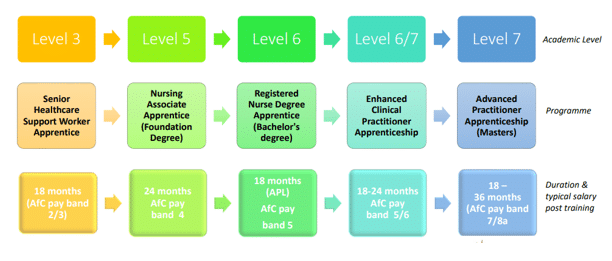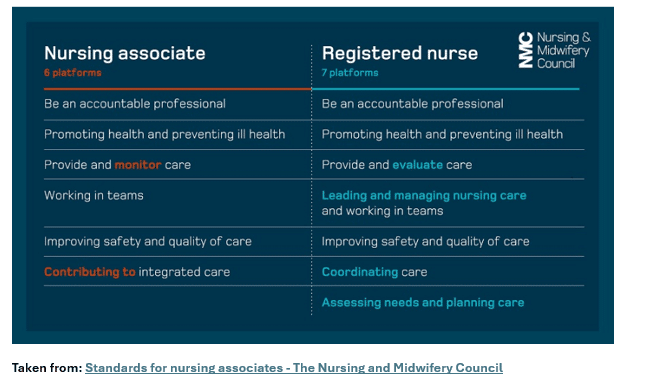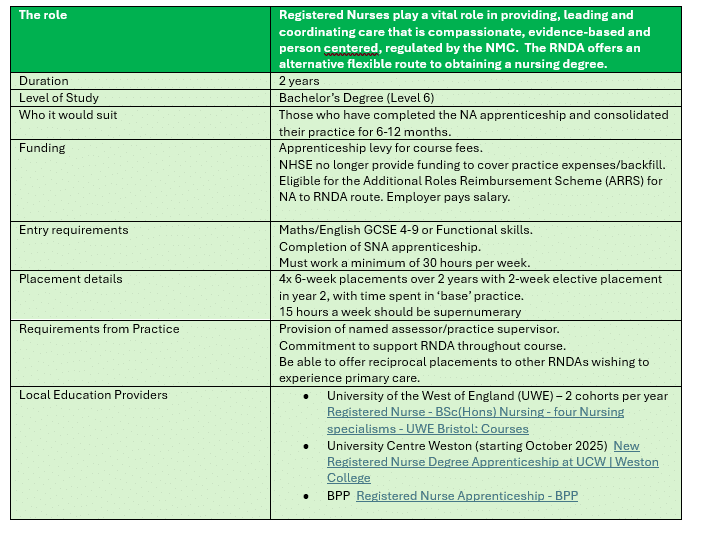What is a Nursing Associate?
The role of the Nursing Associate (NA) was introduced in 2017 to bridge the gap between Health Care Assistant (HCA)/ Health Care Support Worker (HCSW) and Registered Nurse (RN) and help meet the changing health and care needs of patients and the public. NA is a stand-alone role as well as also providing a route to RN.
How can a Nursing Associate benefit a Practice and PCN?
- Nursing Associates have become valuable members of a number of primary care nursing teams within BNSSG leading to an improvement in service delivery and patient care. Many practices have recognised the value of “growing their own workforce” which has been shown to improve staff retention by developing and supporting staff initially working in health care support worker roles to undertake the Student Nursing Associate Apprenticeship to further extend their roles.
- Employing Nursing Associates has allowed Registered Nurses to focus on more complex clinical work.
- The Nurse Associate role has led to an increase in the supply of Registered Nurses by providing a progression route into graduate-level nursing.
See: Nursing Associates – Growing Your Own or Developing Existing Staff and Retaining Talent.pdf



